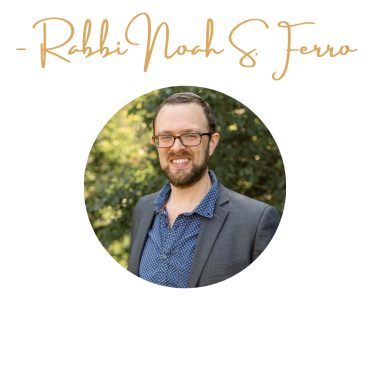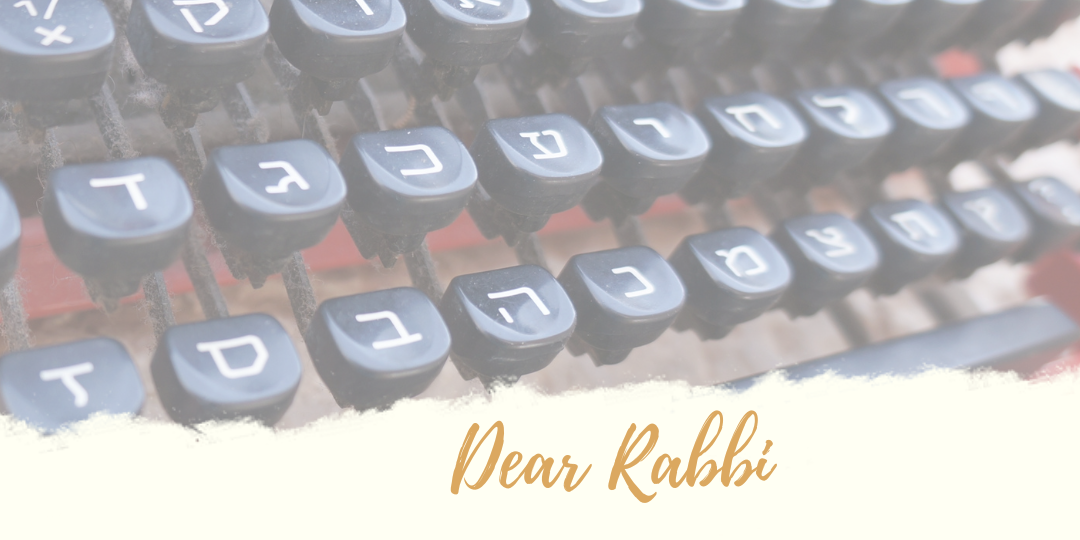DO YOU HAVE A QUESTION FOR THE RABBI? WRITE TO RABBI FERRO AT RABBI@NHS-CBA.ORG WITH THE SUBJECT “DEAR RABBI…”
Dear Rabbi,
I’ve noticed that when we say Kaddish for departed loved ones, some unusual things happen. Some people stand up, and some people don’t. There are certain parts that only one person says and other parts that everyone says. We sometimes say the prayer two times, one almost right after the other – but not always. And I thought we were supposed to read people’s names for Kaddish only on their yahrzeit, but it seems like we read some names more often than that.
If I were coming to a synagogue for the first time and saw all of this, I would find it really confusing. Can you explain a little more about what we do with the Mourner’s Kaddish and why?
-Curious about Kaddish
Dear Name,
Your questions touch on the laws and customs of mourning as well as different communities’ liturgical practices. But first, a clarifying piece: what is Kaddish?
The Kaddish prayer is a praise of God often said (as Kaddish Yatom, the “Mourner’s Kaddish”) in memory of a deceased loved one. The rationale is that we want God to look favorably on the spirit of our loved one, and in order to help God feel inclined to
look favorably; we say Kaddish in that person’s place. God then gives that person credit for our prayer, so we hope.
As with many Jewish prayers, Kaddish is a call-and-response prayer: one or more people (mourners) lead others (the congregation) in the prayer, with the congregation offering appropriate responses at specific points. Tradition tells us that it is appropriately recited in the presence of a minyan – a “prayer quorum,” at least ten Jewish adults whom Torah obligates to pray daily prayers. It is also recited while standing and facing the Aron Kodesh (the Ark that contains one or more Torah scrolls) or facing Jerusalem.
There are different customs about standing during Kaddish. According to some, a person reciting Kaddish stands, but the congregation remains seated. According to others, everyone stands. Still, others hold that because this dispute exists, standing is not required for the congregation, but neither is it forbidden (more on this at the end).
As far as mourning customs go, there are four kinds of deceased relatives for whom a Jew is obligated to observe a mourning period called sheloshim (meaning “thirty”) – a parent, a child, a sibling, or a spouse. This period lasts thirty days, including the period of shiv’ah, the week following the burial. Throughout sheloshim, we make an effort to attend at least one prayer
service a day to say Kaddish in the presence of a minyan.
When a person loses a parent, their mourning lasts twelve months, but they stop reciting Kaddish after only eleven months. The common explanation for this custom is as follows: We believe that saying Kaddish confers spiritual merit to the deceased, so we want to offer a significant benefit to our parents by saying Kaddish for several months; at the same time, we don’t want to take the full twelve months, because doing so implies that their souls urgently need as much merit as they can get! So we cut it short by one month.
Whether thirty days or twelve months, once these periods of mourning are over, it is also customary to say Kaddish again every year on the anniversary of the person’s death (the yahrzeit), as well as to light a special yahrzeit candle at sundown on the day preceding that yahrzeit. In some communities, people observe this custom only for a parent. In others, they observe it for anyone who is obligated as a mourner (the four relationships mentioned above). And it is common as well for some people to say Kaddish for anyone they may be remembering, regardless of their relationship to the deceased. (Note: teachers are sometimes mourned in the same way as parents or other close relatives are mourned.)
It might surprise you to know that there are many traditions around reciting Kaddish that are a matter of custom rather than Jewish law. For this reason, there can be considerable variation in personal practice. Here at Northern Hills Synagogue, we try to honor the many different family customs our congregants have. So we keep a list of names of those who have recently passed and read those at every service, regardless of who attends and who is “supposed” to say Kaddish for them. We also keep each name on this list for eleven months unless a friend or family member requests to have a name taken off sooner.
We also recognize that people may be unable to attend services with a minyan on the day of a loved one’s yahrzeit. They may choose instead to take advantage of being part of a minyan on another day (often, the Shabbat before the yahrzeit). So if you’re observing a yahrzeit that begins Monday evening, but you don’t expect to be at services on Monday night or Tuesday morning, you might decide to say Kaddish on Saturday.
There are many variations in these customs nowadays, and there is no single right or wrong approach. While some people are careful never to recite the Mourner’s Kaddish when they aren’t obligated to, others have a custom of reciting Kaddish in memory of friends or distant relatives, especially when there’s reason to believe that no one else will say it. Others make a point of reciting
Kaddish for Jews with no one to recite Kaddish for them – including, for instance, individuals who were murdered in the Holocaust.
Just as different communities have different customs about sitting and standing, there are some communities where the entire congregation is invited not only to stand for Mourner’s Kaddish together but also to recite the whole prayer together.
Regardless of individual practice, I believe it is ideal to have a personal connection to someone for whom we are reciting Kaddish because it is primarily supposed to help us think about the unique, individual person (or people) we are remembering. If there is any special mystical or spiritual merit that needs to be conferred on the deceased, we ought to rely on God to mete that out appropriately, with or without our prayer. For our part, we cause the departed to live on as a blessing when we remember them and put into practice the values and the lessons they taught us while they lived.



